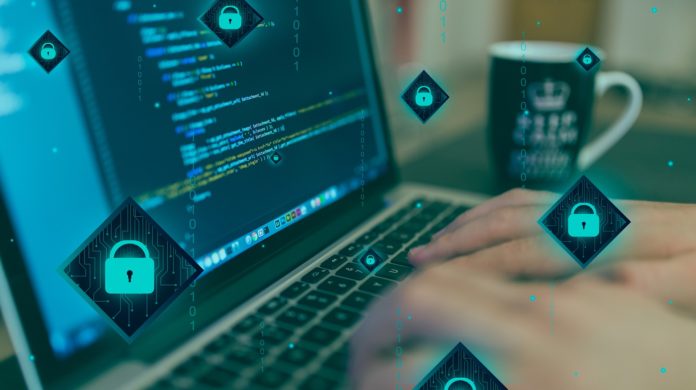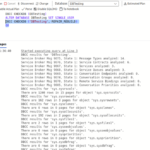
Linux is one of the operating systems such as Windows, Mac OS, and IOS. Linux also powers the Android system that most popular platforms rest in. People around the world mostly prefer Windows or Mac as an operating system.
On the other hand, we can see that corporations prefer to use Linux systems more. One of the reasons for this is Linux offers a great range of cybersecurity opportunities and other benefits for businesses. If you are a business owner or an IT specialist in a company, you should try the Linux system to see how it can accelerate your cybersecurity compliance process.
Linux Benefits in Businesses
Here, we would like to introduce some of the features of the Linux system that make it preferable.
● Cost-Saving
The very first reason for choosing Linux is that it is more cost-effective when compared to Windows or IOS. Businesses spend lots of money on digital assets and other cyber-related products or services. Furthermore, cybersecurity solutions can be really expensive at times. Linux offers affordable prices that can release companies from the burden of high prices.
● Security
Linux operating systems are considered more secure than Windows operating systems so it is another way to choose Linux for your business-related works. Companies hold sensitive and valuable data and Linux’s cybersecurity solutions make it more attractive in terms of data protection. Learning about basic and intermediate Linux commands accelerates your cybersecurity adoption and makes your company more cybersecurity compliant. We can clearly say that Linux operating system is advantageous when it comes to cybersecurity so you must pay adequate attention to the Linux system.
● Language Support
Linux supports many programming languages so it becomes appealing in terms of programming in a company. You can check which languages are used for business programming and control whether Linux supports them or not. If companies want to create different programs without hardship, they can adopt Linux as their operating system and benefit from what Linux offers.
Linux & Cybersecurity Relations in Businesses
Although there are several other benefits that Linux has, we are interested in the cybersecurity angle of Linux in this article. See how can you keep your business safe by using Linux commands and other beneficial cybersecurity tools.
Business VPNs
When it comes to business cybersecurity, VPN solutions should be mentioned. Business VPN is a special type of VPN that focuses on business-related cybersecurity issues and solutions. Assets, data protection, and cloud security can be the main concerns of any business in today’s world. Business VPN offers cyber solutions regarding cloud security and safe movements in a business network.
VPN is an abbreviation of Virtual Private Network, which creates a virtual tunnel that keeps data safe throughout the tunnel. From resources to endpoints, the data can be kept safe thanks to VPN. Business VPN also functions the same and enables companies to keep their data safe. Only the ones who have a business VPN can access the company resources. In this way, companies can prevent unauthorized access to valuable company assets and data breaches. They can also conceal their data traffic from unwanted third parties and can block network visibility against unauthorized people.
On the other hand, VPN solutions are affordable and small business VPN solutions are widely considered in the cybersecurity world. Adopting Linux can mitigate costs so small corporations can invest in VPN solutions to protect their company network, resources, and applications from malicious purposes.
Using a business VPN for the remote workforce is also crucial. We know that remote work increases the risk of cyber threats but companies must adapt themselves to new cybersecurity requirements to pursue their remote work model without compromising their security. Business VPN helps remote employees to access company files safely and mitigates the risk of public wifis that remote employees use commonly.
Linux and Business VPN
When companies adopt Linux operating systems on their devices they must consider cybersecurity tools. You should know that not all cybersecurity solutions work well on Linux so the companies that adopt Linux must embrace proper cybersecurity tools that function on Linux well.
Many types of VPNs are open to Linux operating systems. However, it does not mean that they keep velocity and effectiveness also. The vital thing is to improve productivity, access ability, and speed. If the VPN that the corporation uses slowdown its daily operations or there are drawbacks on log-ins, manual configuration, or unblock capacities, we can not say that this is the proper VPN for this company.
The good news is, business VPN fits best to the Linux system so employees and managers can pursue their daily operations without concern about speed or safety.
2FA and MFA
Two-factor authentication (2FA) and multi-factor authentication (MFA) is a great way to improve your Linux cybersecurity. Both in these authentication methods, passwords are not enough to log in or access any resources. 2FA asks for another authentication step such as codes sended via e-mail or biometrics. As you can infer from the name, multi-factor authentication asks for two or more authentication steps to reach any resources. Although it might be exhausting at times, it is vital for a company’s cybersecurity.
Last Thoughts on Linux and Cybersecurity
Linux is preferable in terms of cybersecurity solutions in corporations. Among other benefits, most companies use Linux for its credit on cybersecurity. Although Linux is a bit more trustable when compared to Windows it can not provide total cybersecurity in corporations. Businesses must take other precautions to avoid unwanted breaches or attacks. Blending the appropriate cybersecurity solution with Linux can skyrocket business quality and cyber safety.





